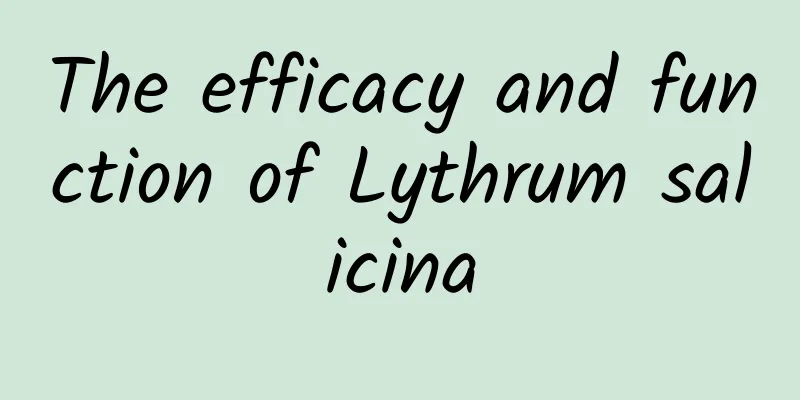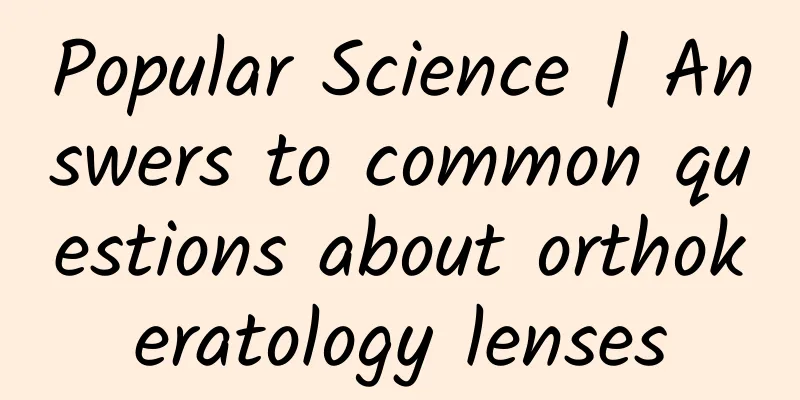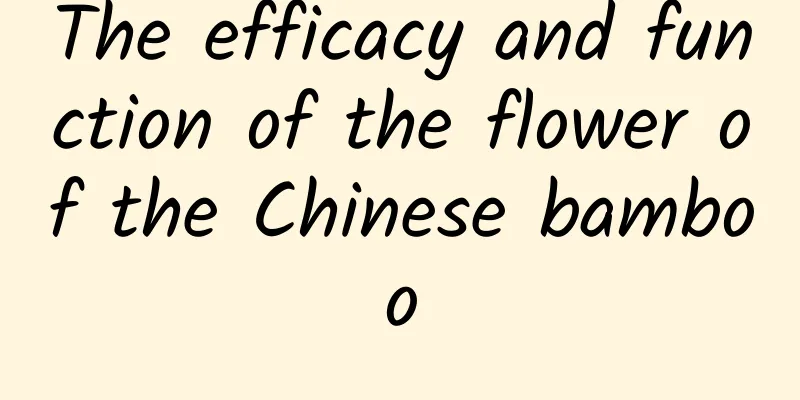The efficacy and function of Lythrum salicina

|
Lythrum salicaria is a common Chinese medicine. It can be used for medicinal purposes as well as for food. The effects and functions of Lythrum salicaria are quite comprehensive. Let's take a look at them together. [Other names] Double-leaf lotus (Guizhou Folk Medicine), Double-tooth grass, Iron water chestnut (Hunan Materia Medica). Verbena, Verbena officinalis. [Source] It is the whole herb of Lythrum salicina of the Lythraceae family. Harvest in autumn. [Original morphology] Perennial herb, 30 to 100 cm tall, pubescent all over, sometimes glabrous. The stem is erect, much branched and four-sided. Leaves are opposite or in whorls of 3, narrowly lanceolate, 4-6 cm long, 8-15 mm wide, slightly obtuse or mucronate at apex, rounded or cordate at base, sometimes slightly clasping the stem. The raceme is terminal; the flowers are bisexual, with several clusters in the axils of leaf-like bracts; the calyx is tubular, 6-8 mm long, with 12 longitudinal ridges on the outside, 6 triangular lobes, and linear appendages longer than the calyx lobes, about 1.5-2 mm; the petals are 6, purple-red, oblong, and cuneate at the base; the stamens are 12, 6 long and 6 short; the ovary is sessile, 2-chambered, the style is cylindrical, and the stigma is capitate. The capsule is oval, completely enclosed in the calyx, and splits into two lobes when hot; there are many small seeds. Flowering period is from July to August. [Habitat distribution] It grows in moist places and is often cultivated for ornamental purposes. It is distributed in most parts of our country. 【Chemical composition】 Contains vitexin, orientin, isoorientin, chlorogenic acid, ellagic acid, gallic acid, choline, tannin, pigment, volatile oil, pectin, resin and bioalkali. 【Nature and flavor】 Bitter, cold. 【Functions and indications】 Clears away heat and cools blood. Clears away heat and toxins, astringes, breaks up meridians and relieves blood stasis. Treat dysentery, metrorrhagia, and ulcers. Used for dysentery and amenorrhea due to blood stasis. [Usage and Dosage] Take orally as decoction, 0.5 to 1 liang. For external use: grind into powder and apply on the affected area. [Additional prescription] ① Treat dysentery: 3 to 5 qian of Lythrum sachalinensis, decocted in water and taken orally. (Hunan Pharmacopoeia) [Note] The same plant of the same genus , Lythrum salicina, is also used for medicinal purposes. The main differences from the previous species are: the stems and leaves are glabrous, the leaves are opposite and lanceolate; 3 to 5 flowers are gathered into short corymbs, which are arranged in whorls in the axils of leaves (bracts); the appendages of the calyx are short, about 0.6 mm long. Distributed in northern and northeastern my country. 【Excerpt】 《*Dictionary》 [Source] From "Herbal Medicine for Famine Relief" The above are some little knowledge about Lythrum salicaria. If you feel it is suitable for your physical condition, you might as well give it a try. I believe it will bring about a significant improvement to your body. |
<<: The efficacy and role of lead
>>: The efficacy and function of Qianli Zhaogen
Recommend
Hahahahahaha! The hilarious commentary is here again! Why does everyone love Wang Meng?
Expert of this article: Zhao Wei, deputy chief ph...
"Healthy by eating" series | What to eat for midnight snack? See if you have fallen into these 5 misunderstandings
This summer, the country has been experiencing hi...
The efficacy and function of red grass
Red grass is one of the common traditional Chines...
Toco - the most beautiful cub on the Amazon River
I went to the zoo last week. I wanted to see the ...
The efficacy and function of Cassia tomentosa
In today's society, health preservation seems...
The efficacy and role of chemical drugs
Friends who don’t know chemical medicine will not...
A "minor cold" causes indicators to soar, 10,000 times higher than normal values. Be alert to the onset of myocarditis!
Recently, a girl in Guangdong had persistent coug...
How to eat red ginseng most nutritiously?
We eat a lot nowadays. The various kinds of delic...
CSISC: 2014 Group Buying E-Commerce Brand Online Reputation Ranking
The China Statistical Information Service Center ...
The archery of Ji Fa in "Feng Shen" has become popular, so it's a good opportunity to talk about archery in ancient and modern China
Recently, the movie "Fengshen" has beco...
How did the beautiful and refreshing "Paris Green" become the "deadly fashion color" of the Victorian era?
1862 was a desperate year for Richard and his wif...
The mystery of blood drawing: Why is the “left ring finger” the “lucky finger for blood drawing”?
As a fast and common test method, peripheral bloo...
The efficacy and function of Rhubarb
Traditional Chinese medicine often has unexpected...
The efficacy and function of short-stalked Celastrus fruit
As people's living standards improve, they pa...
The efficacy and function of milkwood
I don’t know if you are familiar with milkwood an...









